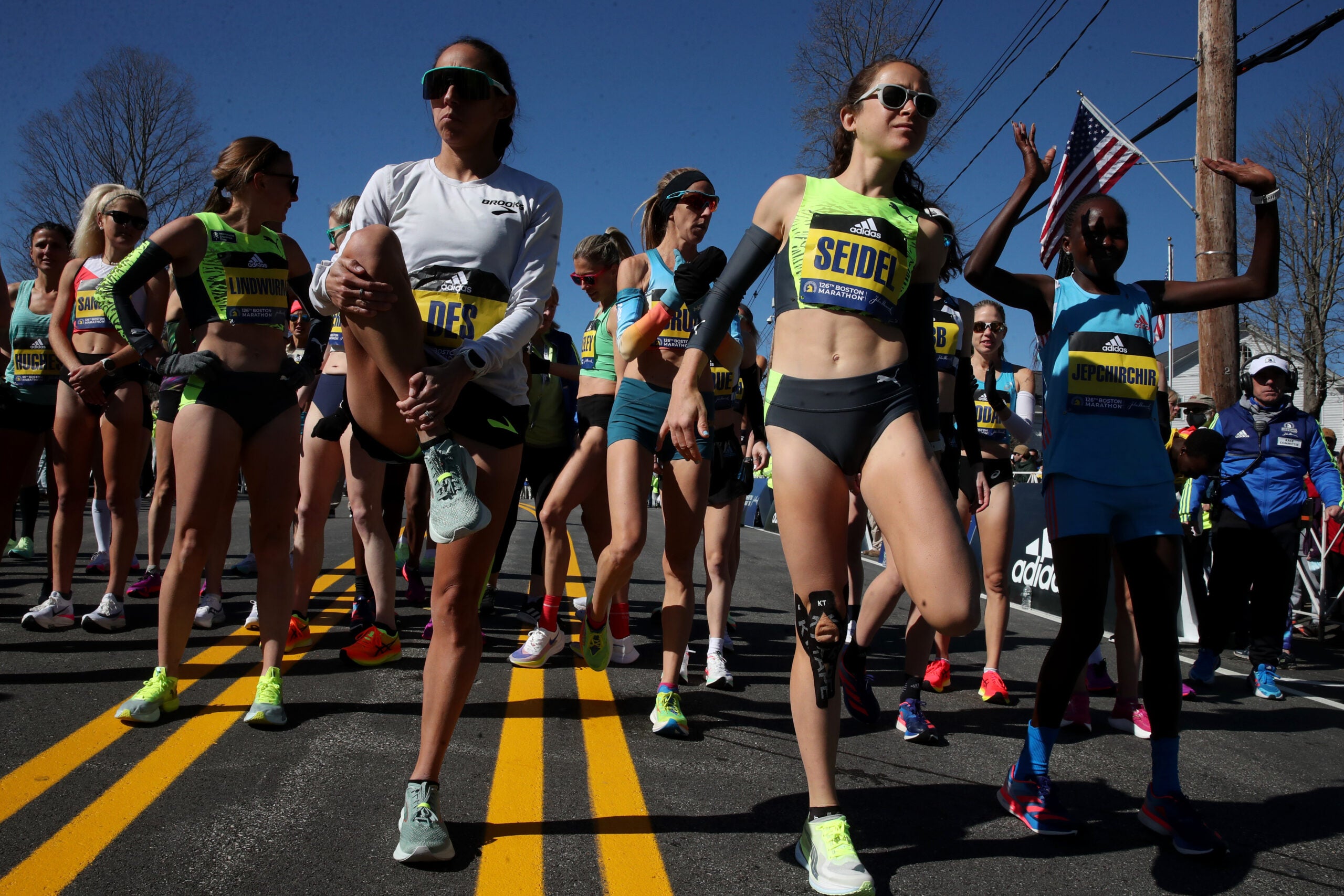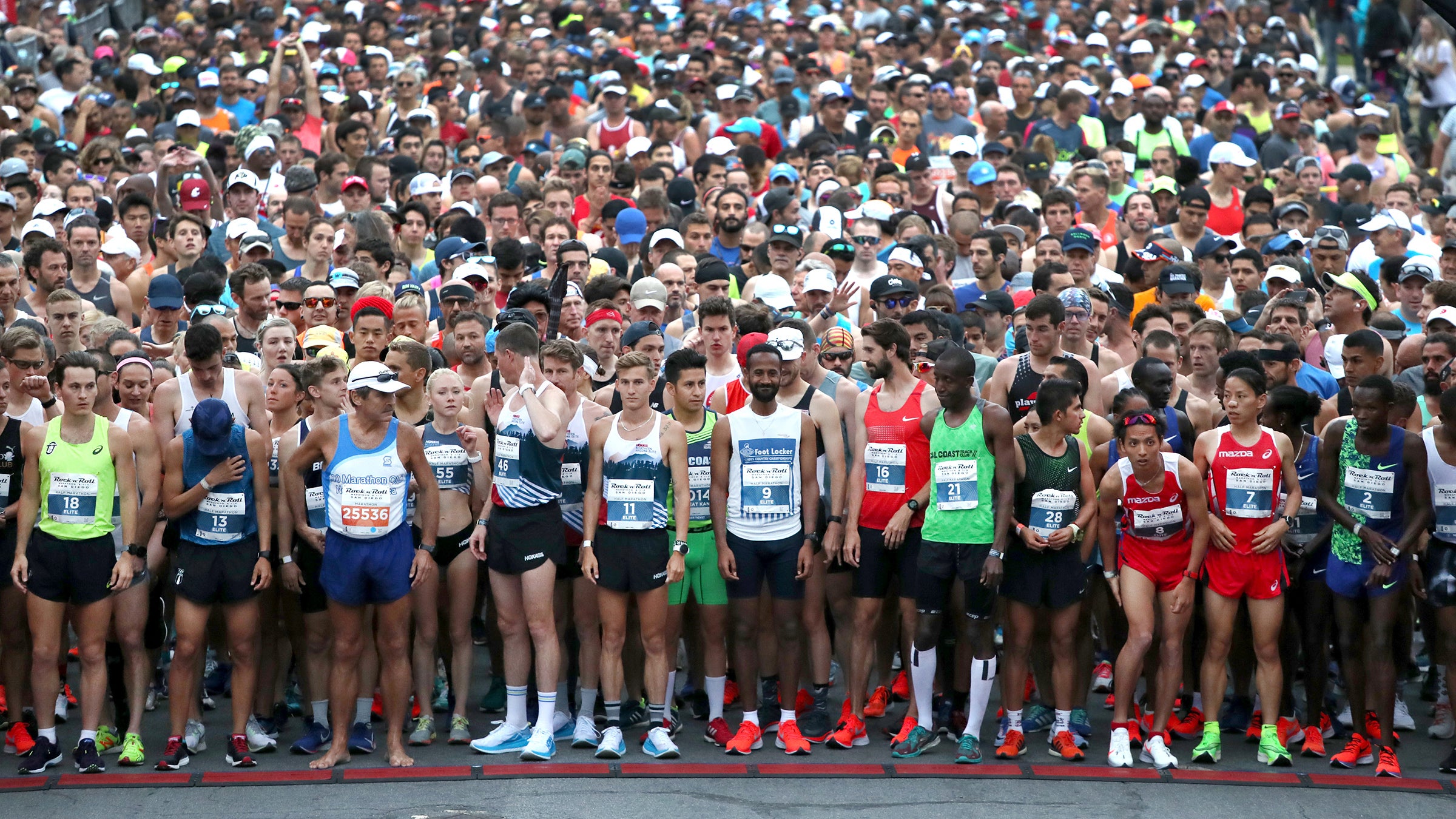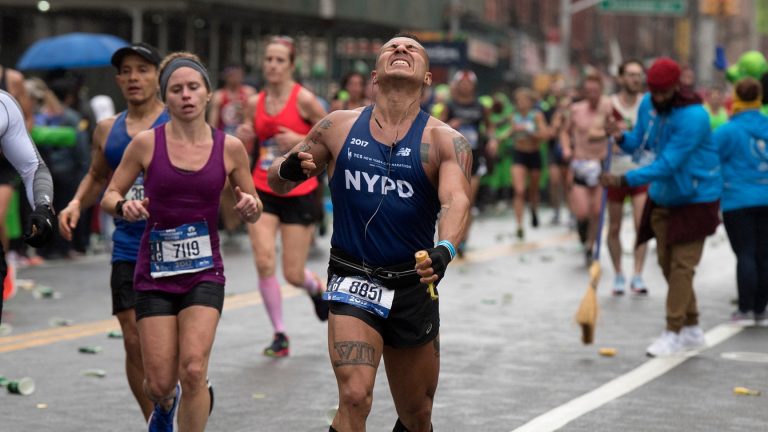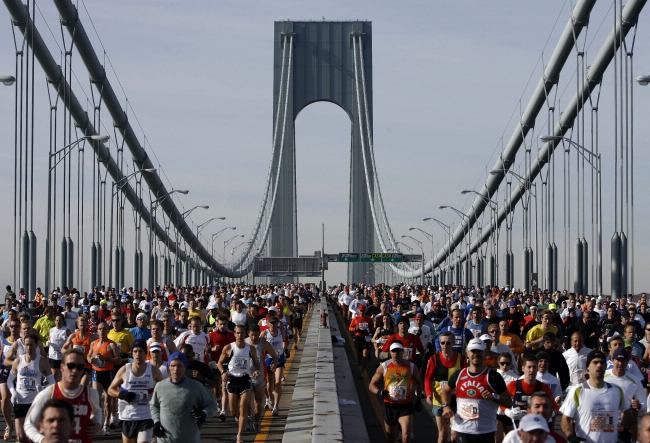How Did Marathon Running Start?
Marathon running originated from the legend of Pheidippides, who ran from Marathon to Athens in 490 BC. The modern marathon was introduced in the first modern Olympics in 1896 in Athens.
Since then, marathon running has become a popular sport worldwide, with thousands of races held annually. From its humble beginnings to a global phenomenon, marathon running reflects human endurance and determination. Today, people of all ages and backgrounds participate in marathons for various reasons – be it for personal accomplishment, charity fundraising, or simply the love of running.
The growth in popularity of marathon running showcases the enduring appeal of this challenging yet rewarding sport. This article will delve deeper into the history, benefits, and trends of marathon running.
The Origins Of Marathon Running
The origin of marathon running can be traced back to ancient Greece, where a legendary tale of triumph and tragedy created the foundation for this enduring sport. Through the years, marathon running evolved and gained global recognition, becoming an integral part of the modern Olympic Games. Let’s delve into the fascinating history of marathon running, from its beginnings as an ancient Greek legend to its prominence in the modern-day Olympics.
Ancient Greek Legend
In ancient Greece, the city-state of Athens faced the imminent threat of invasion from the Persians in 490 BCE. Seeking assistance, they sent a herald named Pheidippides, on a grueling journey to the city of Sparta.
In less than 36 hours, Pheidippides covered approximately 140 miles, traversing treacherous terrains and enduring extreme physical exertion to reach Sparta. His mission was to request military aid from the Spartans to defend Athens.
The speed at which Pheidippides completed this remarkable feat is central to the story that would inspire the marathon race. As the legend goes, following his arrival in Sparta, he quickly negotiated the help of the Spartans and immediately embarked on the return journey to Athens.
Without a moment of rest, Pheidippides ran back to Athens, covering the same grueling distance. Upon reaching the city, he burst into the assembly and delivered the triumphant news of the Spartans’ support.
Despite his incredible achievement, the tale takes a tragic turn. It is said that immediately after delivering the news, Pheidippides collapsed and died from exhaustion.
This extraordinary feat of endurance and sacrifice became the inspiration behind the modern marathon race. In 1896, the marathon was included as an event in the inaugural modern Olympic Games held in Athens to honor this incredible legend.
Modern Olympic Games
In the modern Olympic Games, the marathon race became one of the highlights of the sporting event, captivating audiences around the world. Inspired by the ancient Greek legend, the marathon race was held as a tribute to Pheidippides and the history of ancient Greece.
The first official Olympic marathon race took place in 1896, covering a distance of 24.85 miles, starting from the city of Marathon and finishing at the Olympic Stadium in Athens. It symbolized the historical journey undertaken by Pheidippides.
This inaugural marathon race marked the beginning of a tradition that continues to this day, with athletes from all corners of the globe participating in the ultimate test of endurance and determination.
Since then, the marathon distance has been standardized to 26.2 miles or 42.195 kilometers. The marathon race in the Olympics represents the epitome of athletic achievement and has become an iconic event that celebrates the indomitable spirit of human endeavor.
In conclusion, the origins of marathon running can be traced back to the legendary tale of Pheidippides, an ancient Greek messenger who ran to request military aid for Athens and tragically died after completing his heroic task. This story inspired the inclusion of the marathon race in the modern Olympic Games, cementing its significance as a symbol of endurance, determination, and athletic prowess.

Credit: www.wsj.com
Evolution Of Marathon Races
Marathon running has a rich history, dating back to ancient Greece where legend has it that a soldier ran 26. 2 miles to deliver news of victory. Since then, marathons have evolved, becoming a global phenomenon and a pinnacle of endurance and human accomplishment.
Evolution of Marathon Races Marathon running has a rich history dating back to ancient times, originating from the legendary run of a Greek soldier named Pheidippides. With time, marathon races evolved in terms of distance, rules, and participation. From 19th Century to Present 19th Century: Official marathon races started in the late 19th century, with the first modern marathon held at the 1896 Olympics in Athens. 20th Century: The marathon distance was standardized to 26.2 miles in the 1908 London Olympics, and the race grew in popularity globally. 21st Century: Modern advancements in technology and training have transformed marathon running into a widely accessible and competitive sport worldwide. Impact of Women on Marathon Running Women’s Inclusion: Women were initially excluded from marathon races, but their resilience led to the inclusion of women’s marathon events. Records and Achievements: Female athletes have shattered records and barriers in marathon running, showcasing their remarkable endurance and skill. Inspiration: Women have inspired a new generation of runners, both male and female, to push their limits and achieve greatness in marathon races.Training And Preparation
Physical Training
Regular exercise is essential for marathon runners.
- Running long distances helps build endurance.
- Strength training helps prevent injuries.
Mental Preparation
Visualizing success is key for marathon runners.
- Setting goals boosts motivation.
- Mental toughness is crucial for overcoming challenges.
Marathon Running Community
Marathon running, a community that has thrived over the centuries, originated from the ancient Greek legend of a messenger running from Marathon to Athens to announce victory. Since then, marathon running has formed a global community, transcending boundaries and inspiring individuals worldwide to push their limits.
Support And Encouragement
The marathon running community is renowned for its unwavering support and unparalleled encouragement. Whether you are a seasoned marathoner or a novice, this community embraces and uplifts every individual with enthusiasm. By participating in marathons, you become part of a supportive network that inspires you to push your limits and achieve your goals. Along the course, fellow runners, spectators, and volunteers fervently cheer for each participant, creating an electrifying atmosphere that motivates everyone to keep going.
One of the incredible aspects of the marathon running community is the encouragement you receive from your fellow runners. You will often find yourself surrounded by like-minded individuals who understand the physical and mental challenges of marathon running. Mutual motivation flows throughout the community, encouraging every runner to give their best and cross that finish line triumphantly.
Moreover, the marathon running community offers support in various forms. Veteran runners willingly share their knowledge and experience with newcomers, providing valuable tips and advice. From training strategies to nutrition and injury prevention, there is an abundance of information available within this community. By tapping into this wealth of knowledge, both beginners and experienced runners can enhance their marathon experience and improve their performance.
Charity And Fundraising
In addition to the support and encouragement, the marathon running community is deeply committed to charitable causes and fundraising efforts. Many marathons are associated with nonprofits and charity organizations, allowing participants to run not just for their personal goals, but also for a greater purpose. This aspect gives marathon running a higher meaning, contributing to the collective well-being of society.
Charity and fundraising have become integral aspects of marathon events. Runners often dedicate their participation to raise funds for various causes, such as medical research, education, environmental conservation, and disaster relief, just to name a few. Marathons serve as platforms to raise awareness and financial support for these causes, making a profound impact in communities worldwide.
By actively engaging in charity and fundraising endeavors, the marathon running community exemplifies the power of collective action. Runners come together not only to test their physical boundaries but also to make a meaningful difference in the lives of others. Together, they contribute to noble causes that support individuals and communities in need.
Health And Well-being
Marathon running has a long history, dating back to ancient Greece, where it was born out of a need for physical fitness, mental resilience, and as a test of endurance. The practice has since evolved into a global phenomenon, with millions of people participating in marathons each year for various reasons, including health and well-being.
Physical Benefits
Running a marathon can have numerous physical benefits. It helps in weight management, by burning calories and improving metabolism. Additionally, it strengthens muscles and bones, enhancing overall physical strength and stamina. Regular marathon training can also lead to lower blood pressure and improved cardiovascular health, reducing the risk of chronic diseases.
Mental And Emotional Impact
The mental and emotional impact of marathon running is significant. The endorphins released during long-distance running can boost mood and reduce stress, leading to a greater sense of well-being. It also fosters a sense of accomplishment and empowerment, contributing to improved self-esteem and confidence.

Credit: www.trainingpeaks.com

Credit: www.boston.com
Frequently Asked Questions For How Did Marathon Running Start
How Did The Marathon Come To Be?
The marathon originated from a Greek soldier’s run from Marathon to Athens in 490 BC.
What Is The Myth Of The Marathon?
The myth of the marathon originates from the legendary story of a Greek messenger running from Marathon to Athens.
What Caused Marathon?
The marathon was caused by the ancient Greek soldier Pheidippides, who ran from Marathon to Athens to deliver a victory message, covering a distance of about 26 miles. His determination and perseverance became the inspiration for the modern-day marathon race.
Conclusion
As we explored the history of marathon running, it is evident it originated from ancient Greek legends. The tale of Pheidippides and the Battle of Marathon still holds significance today, with the marathon distance being inspired by his heroic feat.
From its humble beginnings to its worldwide popularity today, marathon running continues to captivate and challenge individuals across the globe. So, the next time you lace up your running shoes, remember the rich history behind this incredible sport.







